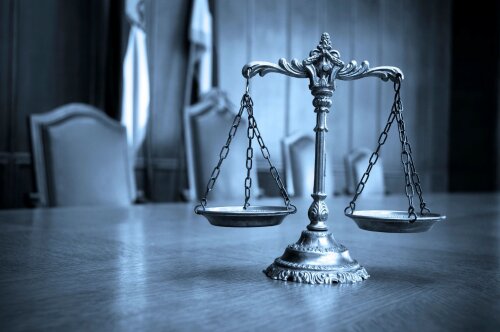Best Defamation Lawyers in Atasehir
Share your needs with us, get contacted by law firms.
Free. Takes 2 min.
List of the best lawyers in Atasehir, Turkey
About Defamation Law in Atasehir, Turkey
Defamation law in Atasehir, Turkey, is designed to protect individuals and organizations from false statements that may harm their reputation. Defamation can occur through various mediums, including spoken words (slander) or written communication (libel). Turkey has stringent defamation laws, balancing the right to free speech with the need to protect personal and professional reputations. Plaintiffs in defamation cases must prove that a misleading statement was made publicly, which resulted in damage to their reputation.
Why You May Need a Lawyer
Seeking legal advice in defamation cases can be crucial due to the complexities involved in proving the harm caused by the defamatory statement. Common situations where people might need legal help include:
- When a false statement has been made about someone in a public forum that could harm their reputation.
- If an individual or business suffers economic loss due to defamatory remarks.
- When dealing with online defamation, such as false reviews or malicious social media posts.
- If accused parties face a defamation lawsuit and need to mount a defense.
Local Laws Overview
The Turkish legal system handles defamation both as a civil and a criminal offense. Key aspects relevant to Atasehir include:
- The Civil Code, which allows for lawsuits seeking compensation for damages caused by defamation.
- Under the Turkish Penal Code, defamation can be treated as a criminal act, leading to fines or imprisonment.
- Special considerations are given to defamation committed through media and the internet, with stricter penalties possible.
- Public figures may have a higher burden of proof to demonstrate actual malice or reckless disregard for the truth.
Frequently Asked Questions
What constitutes defamation in Turkey?
Defamation in Turkey involves making false statements that harm someone's reputation in public, either orally or in writing.
Can opinions be defamatory?
In general, opinions are not considered defamatory as they are subjective. However, if an opinion implies false facts, it could be actionable.
What is the statute of limitations for defamation cases?
The statute of limitations for filing a defamation lawsuit in Turkey is generally one year from the date the defamatory statement was made public.
Is truth a defense for defamation in Turkey?
Yes, truth is an absolute defense in defamation cases in Turkey, meaning if the statement can be proven true, it's not considered defamatory.
Can public figures sue for defamation?
Public figures can sue for defamation but must prove the statement was made with actual malice or reckless disregard for the truth.
How can I prove defamation occurred?
To prove defamation, you typically need to show the statement is false, was made to a third party, and caused damage to your reputation.
Are online statements treated differently under Turkish defamation law?
Yes, online statements can be subject to stricter scrutiny and penalties due to their potentially wider reach and impact.
Can businesses be defamed?
Yes, businesses can also be subjects of defamation if false statements harm their reputation or financial interests.
What penalties can be imposed for defamation?
Penalties for defamation can include fines, compensation for damages, and in severe cases, imprisonment.
Can I settle a defamation claim out of court?
Yes, it's common to negotiate settlements out of court to resolve defamation claims, which can save time and legal expenses.
Additional Resources
For those seeking more information or needing legal advice, consider contacting:
- The Bar Association of Istanbul, which provides resources and can help you find qualified legal professionals.
- Chambers of commerce in Turkey, which might offer guidance for businesses dealing with defamation issues.
- Legal aid offices, which provide assistance to individuals unable to afford private attorneys.
- Online platforms providing legal information specific to Turkish defamation laws.
- Governmental websites, which can be rich sources of updated legislative information.
Next Steps
If you believe you are the victim of defamation or are facing a defamation lawsuit, consider taking these steps:
- Document all evidence of the defamatory statement, including printed or digital media.
- Determine the damages, whether reputational or financial, caused by the statement.
- Consult with a legal professional who specializes in defamation law to assess the strength of your case.
- Evaluate options for reaching out-of-court settlements, depending on the situation.
- Prepare for potential legal proceedings if an amicable resolution is not achievable.
Engaging with a skilled lawyer can significantly enhance your chances of a favorable outcome in any defamation dispute.
Lawzana helps you find the best lawyers and law firms in Atasehir through a curated and pre-screened list of qualified legal professionals. Our platform offers rankings and detailed profiles of attorneys and law firms, allowing you to compare based on practice areas, including Defamation, experience, and client feedback.
Each profile includes a description of the firm's areas of practice, client reviews, team members and partners, year of establishment, spoken languages, office locations, contact information, social media presence, and any published articles or resources. Most firms on our platform speak English and are experienced in both local and international legal matters.
Get a quote from top-rated law firms in Atasehir, Turkey — quickly, securely, and without unnecessary hassle.
Disclaimer:
The information provided on this page is for general informational purposes only and does not constitute legal advice. While we strive to ensure the accuracy and relevance of the content, legal information may change over time, and interpretations of the law can vary. You should always consult with a qualified legal professional for advice specific to your situation.
We disclaim all liability for actions taken or not taken based on the content of this page. If you believe any information is incorrect or outdated, please contact us, and we will review and update it where appropriate.








